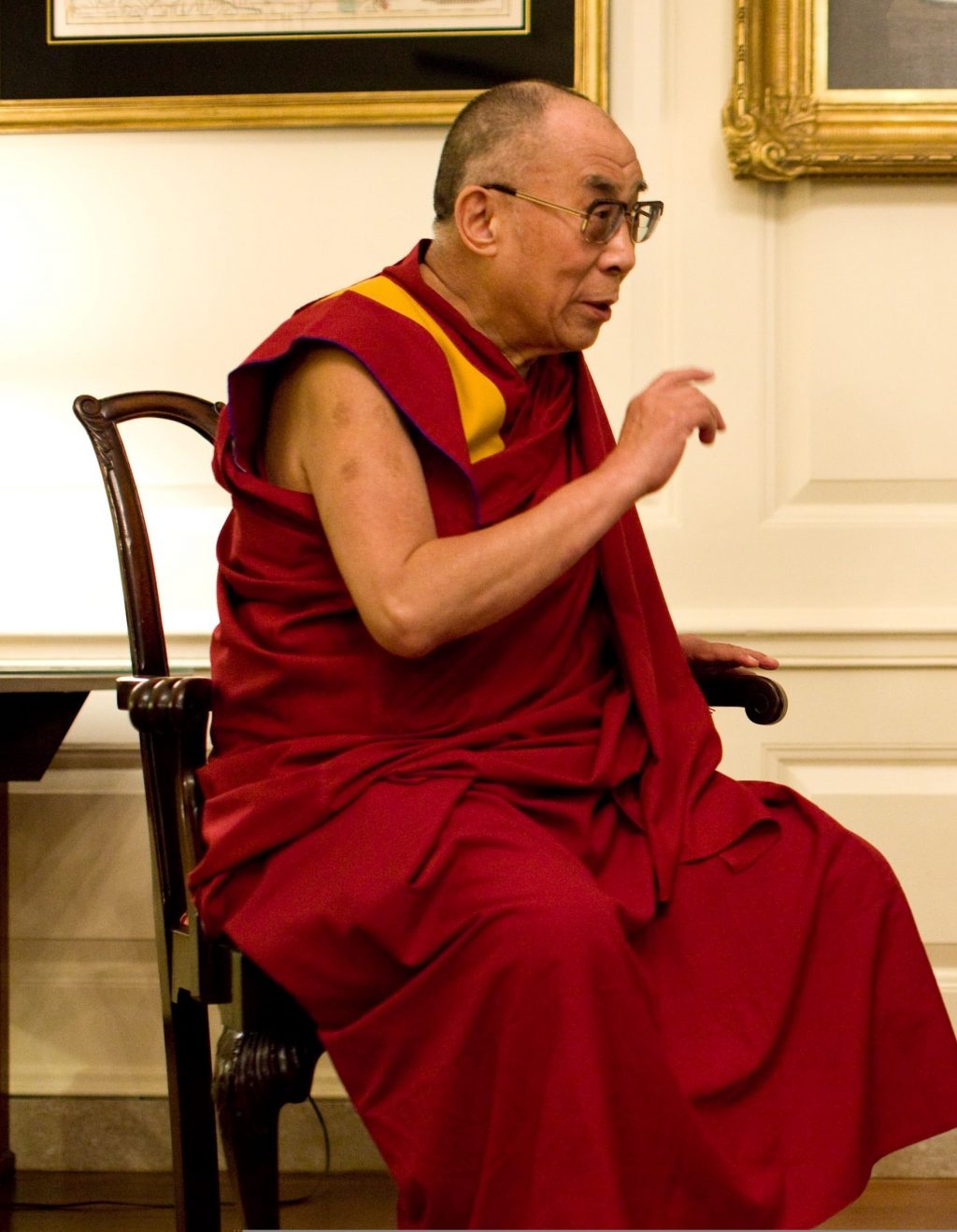The Dalai Lama Is Landing in the Middle of the 2024 Election

In early September of 2020, Joe Biden, then the Democratic nominee for president, promised to put valuesvalues held in contempt, he argued, by the man he would go on to defeatat the center of American foreign policy. To act on his promise, he said, he would do something Donald Trump had neglected to do. Ill meet with His Holiness the Dalai Lama, Biden said.
For American presidents, meeting the 14th Dalai Lama can bring tension and discord, because Communist Party leaders in Beijing consider Tibet to be a part of China. They consider any recognition of the Dalai Lamaa Mandela-level icon, a symbol of Tibets will to survive, and also (by the way) a living Buddha, a bodhisattva, to his millions of followersa terrible insult to Chinese sensitivities. (To be fair, Chinese leaders are omnidirectionally offended, by supporters of Taiwanese independence and Hong Kong democracy; by Christians and Uyghurs and Mongols; and by anyone else who threatens their Middle Kingdom sense of imperial entitlement.)
More than three years into his term, Biden has not made good on his promise, though he has a plausible excuse: The Dalai Lama is 88 years old and in declining health, and he seldom leaves his home in exile in Dharamsala, in the Himalayan foothills of India. But the Dalai Lamas age now provides a path for Biden to keep his promise: The bodhisattva has bad knees and has decided, after much procrastination, to come to New York this summer to investigate the possibility of replacement.
A visit by Biden to the Dalai Lamas hospitalor an after-surgery invitation to the White Housewould signal continuing American concern over the oppression of Tibet and Tibetans, as well as support for one of the most heroic and pacific humanitarian leaders of our age. Such a visit would also have the benefit of signaling to the Chinese government that a U.S. president makes decisions independent of Chinese Communist feelings. (American CEOs are particularly feeble at signaling such independence.) A call on the Dalai Lama couldnt possibly hurt Bidens standing among voters, especially considering the Dalai Lamas previous lack of interest in meeting with Trump when he was president. Five years ago, when I visited the Dalai Lama at his monastery in Manali, he told me that he did not look favorably on Trumps jingoistic America First rhetoric. Everyone first, he said, laughing. A much better idea.
The exact timing of his trip to the United Stateshis first in seven yearshas not yet been decided, but it will follow another event of some significance: a visit later this month to Dharamsala by Representative Nancy Pelosi, the former speaker of the House, and a congressional delegation. Pelosi has championed the Tibetan cause for decades, and, to her credit, she is loathed by Beijing for her comprehensive criticism of Chinas human-rights record. In one of Pelosis earliest meetings with the Dalai Lama, she was so ferocious in her criticism of Chinas human-rights abuses that the Dalai Lama said, impishly, Now let us all pray so that we could rid Nancy of her negative attitudes. (Pelosis trip has not yet been announced, and her spokesperson declined to comment, citing security concerns; news of the Dalai Lamas proposed visit this summer was confirmed to me by sources involved in planning the trip.)
The reemergence of the Dalai Lama into American politics in the months preceding the 2024 presidential election is good news for the unfortunate Tibetan cause, constantly steamrollered as it is by the raw deployment of Chinese power. In Dharamsala, the seat of the Tibetan government in exile, fear is ever present that the Dalai Lamas eventual demise will make even more marginal the cause of Tibetan cultural and political independence. (As is implied by his status as the 14th Dalai Lama, the discovery of a 15th Dalai Lama is likely, though he will be reincarnated, according to Tibetan Buddhist tradition, as a small child, not as someone ready for international diplomacy. And the Chinese government has its own plan to identify and elevate a quisling lama.)
Two months ago, I visited Dharamsala with, among others, Arthur Brooks, the Atlantic columnist and frequent writing collaborator of the Dalai Lamas. We both experienced a religious leader who, though hobbled by knee pain and slowed by age, was still lucid and eloquent on the great subjects of freedom and happiness. I called Arthur today to ask him what he makes of this news.
In a contentious election year, its good to remind Americans of our core values as a people, and among those values are religious freedom and standing up for the dignity of all people around the world, he said. His Holiness the Dalai Lama, as we saw in Dharamsala in April, still has the ability to remind people around the world of what is good and true. For a Tibetan monk, he has an uncanny gift for bringing out the best of what it means to be a person and an American. This is an opportunity that President Biden cannot and should not miss.

